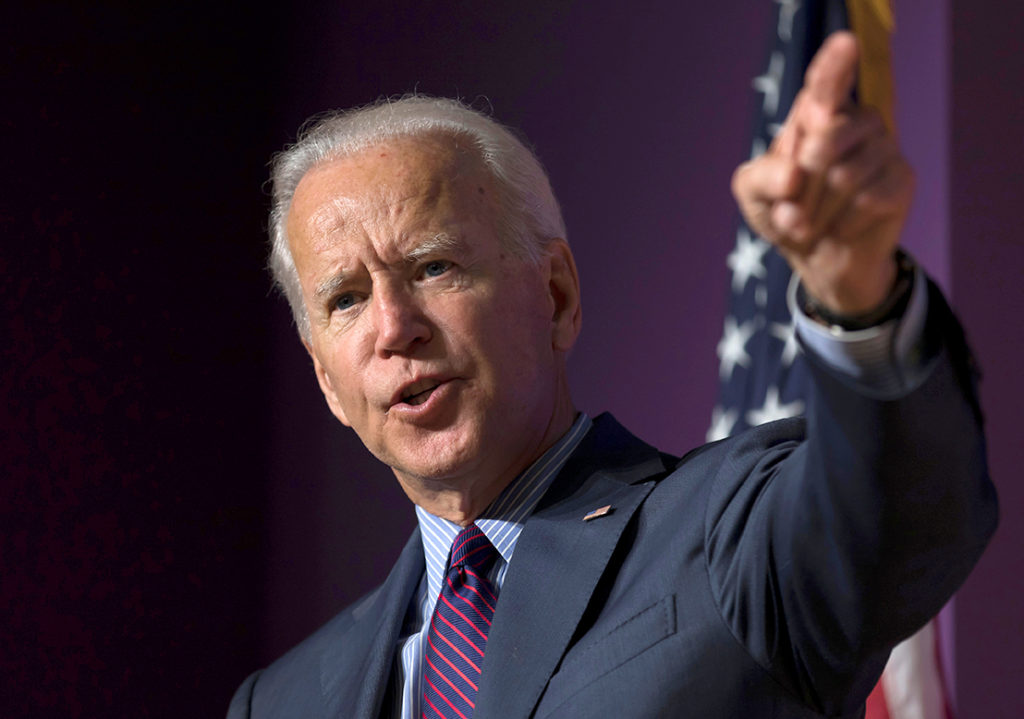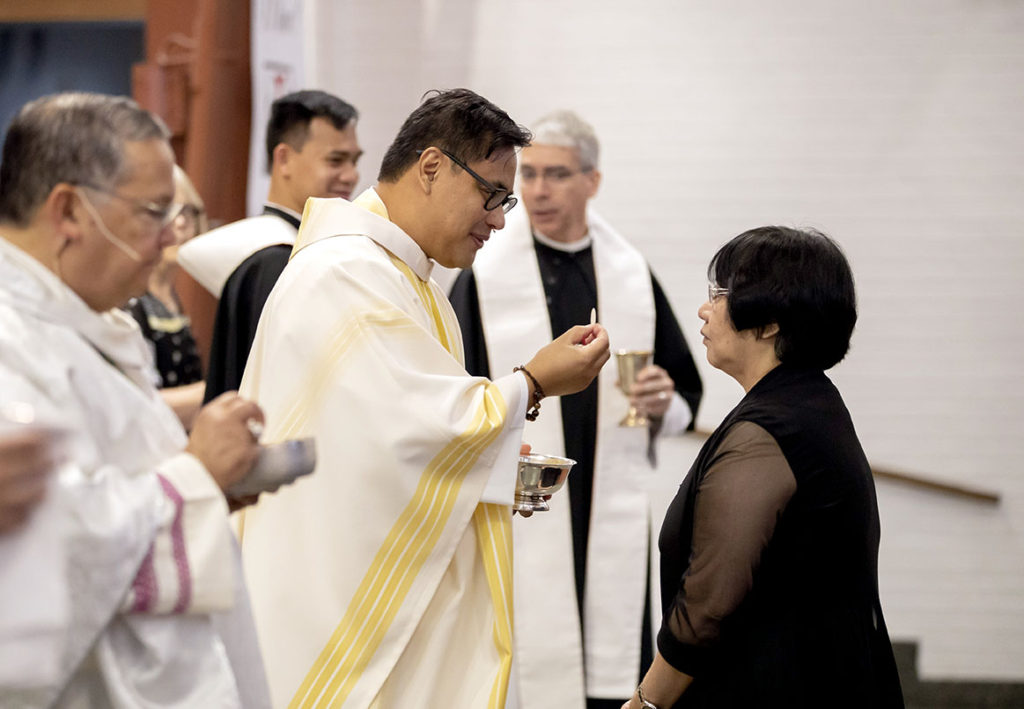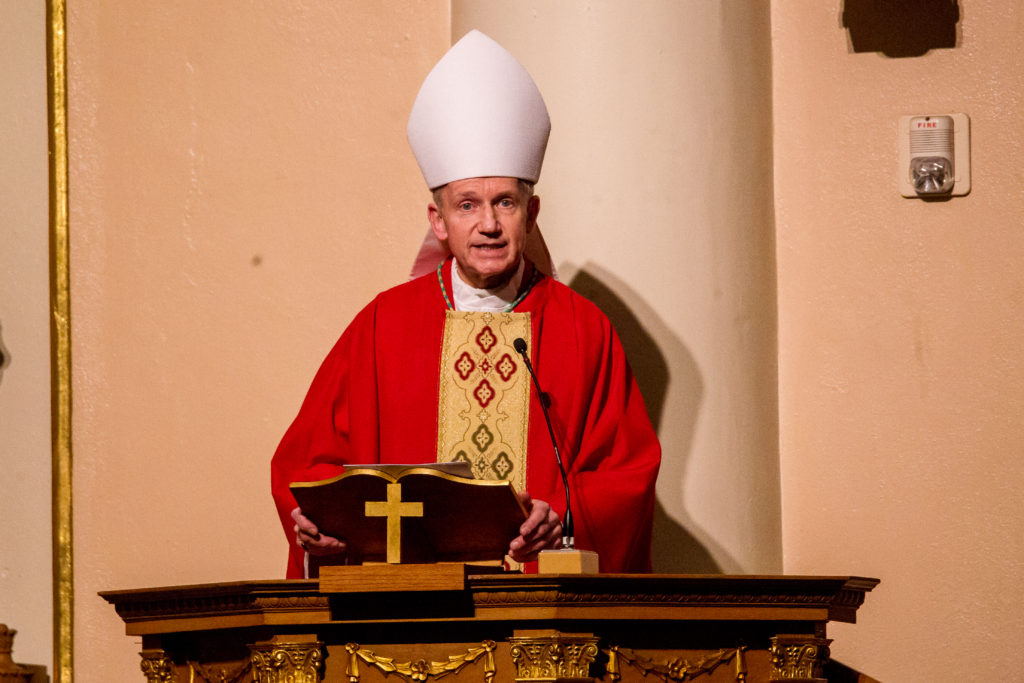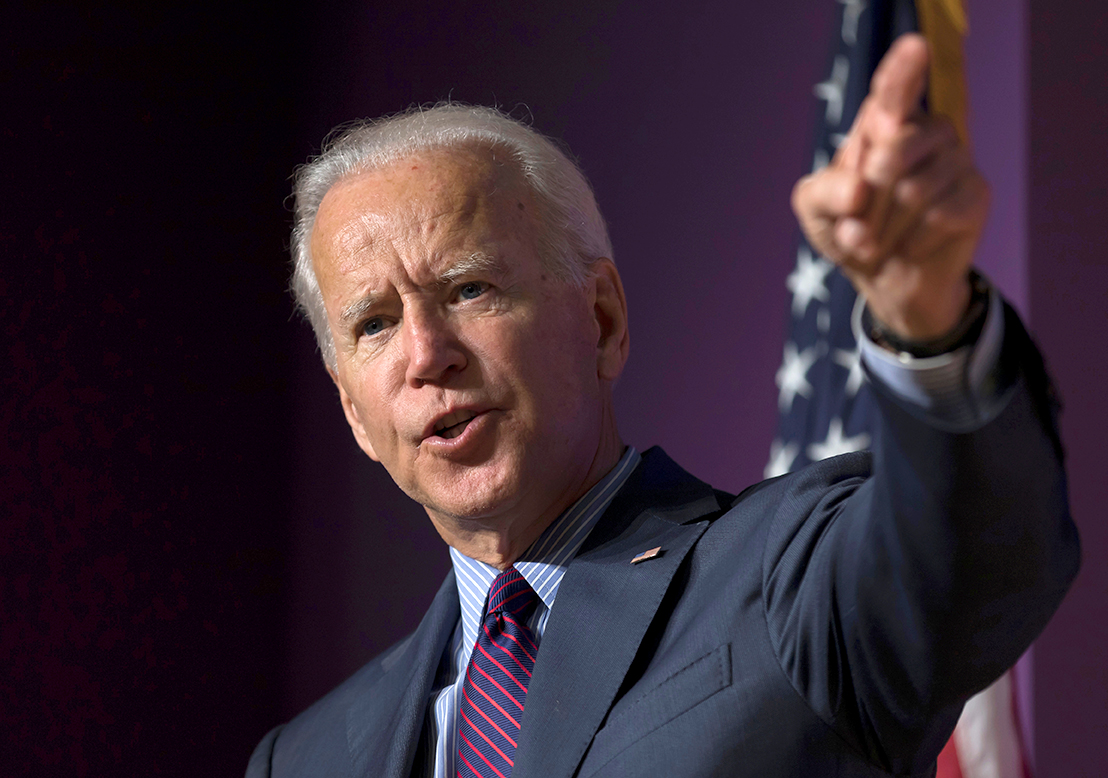
Democratic presidential candidate and former Vice President Joe Biden was denied holy Communion by a pastor of a South Carolina Church Oct. 27, and people can’t stop talking about it. The media, Church leaders, politicians — everyone has an opinion, and not all those opinions, even within the Church, were the same.
So, what happened?
While on the campaign trail in late October, Biden stopped to attend Mass at St. Anthony Church in Florence, South Carolina, where the pastor, Fr. Robert E. Morey, refused Biden the Eucharist.
In a statement later given to news organizations, Fr. Morey confirmed that he had denied Biden the sacrament, which was in keeping with a 2004 decree signed jointly by the bishops of Atlanta, Charleston and Charlotte.
“Sadly, this past Sunday, I had to refuse holy Communion to former Vice President Joe Biden,” Fr. Morey wrote. “Holy Communion signifies we are one with God, each other and the Church. Our actions should reflect that. Any public figure who advocates for abortion places himself or herself outside of Church teaching. As a priest, it is my responsibility to minister to those souls entrusted to my care, and I must do so even in the most difficult situations.”

Biden not only is running on a pro-abortion platform, but also this summer announced that he no longer supports a ban on government-funded abortion.
It is frequently debated within the Church whether or not politicians who go against Church teaching should be admitted to the Eucharist. Cardinal Timothy M. Dolan, archbishop of New York, in an interview with Fox News on Oct. 31, called the situation “difficult” and empathized with Fr. Morey’s position. But he added that he would not have denied Biden the Eucharist.
“I’m not there as a tribunal, as a judge in distributing holy Communion,” the cardinal said. “If only saints could receive holy Communion, we wouldn’t have anybody at Mass, including myself.”
Cardinal Dolan’s response was echoed by other Church notables. But it’s important to note that there is disagreement on interpretation of Canon 915 of the Code of Canon Law, which says that those “obstinately persevering in manifest grave sin are not to be admitted to holy Communion.”
In 2018, Bishop Thomas J. Paprocki of Springfield, Illinois, referenced Canon 915 when he reiterated that U.S. Sen. Richard Durbin should not receive holy Communion because of his continued pro-abortion stance.

“Because his voting record in support of abortion over many years constitutes ‘obstinate persistence in manifest grave sin,’ the determination continues that Sen. Durbin is not to be admitted to holy Communion until he repents of this sin,” Bishop Paprocki wrote. “This provision is intended not to punish, but to bring about a change of heart.”
This is a key point. We do not know whether or not Biden was in a state of grace on the morning he went to receive holy Communion in South Carolina. But we do know the platform on which he is campaigning for the highest and most powerful office in the land — and we know that platform approves of continuing to allow hundreds of thousands of unborn children to be killed each year. Shouldn’t we be doing all we can to encourage him to have a public change of heart?
The debate, then, has been wrongly framed. Rather than immediately jumping to whether or not an individual persisting in manifest grave sin be admitted to holy Communion, better questions would be: Have our pastors done all they can to minister to those persisting in manifest grave sin, so that they may have a change of heart and be brought to repentance and conversion? Have lay Catholics adequately helped to form others in the truth of Church teaching? And have those persisting in manifest grave sin at least attempted to reflect upon or reconsider their actions?
Biden recently told MSNBC that while he practices his faith, he has never sought to impose his religious views on others. As a politician, his words make perfect sense. As a Catholic, they leave much to be desired.
As we face a dwindling Church with members who aren’t sure what the Church teaches, is it too much to ask that those who publicly profess to be Catholic at the very least publicly follow Church teaching? And if not, could they please just sit down?
This unsigned editorial appeared online Nov. 6 on the website of OUR SUNDAY VISITOR, a national Catholic newsweekly based in Huntington, Indiana. It was written by the editorial board. The views or positions presented in this or any guest editorial are those of the individual publication and do not necessarily represent the views of Catholic News Service or of the U.S. Conference of Catholic Bishops.







